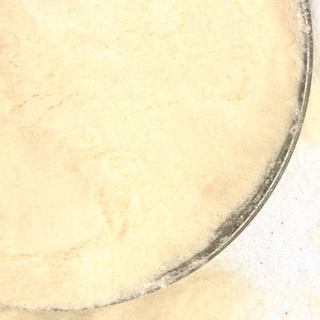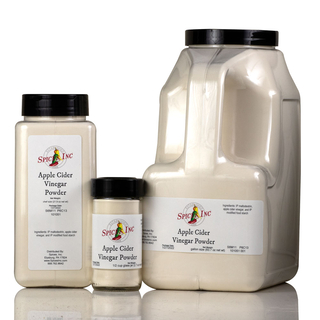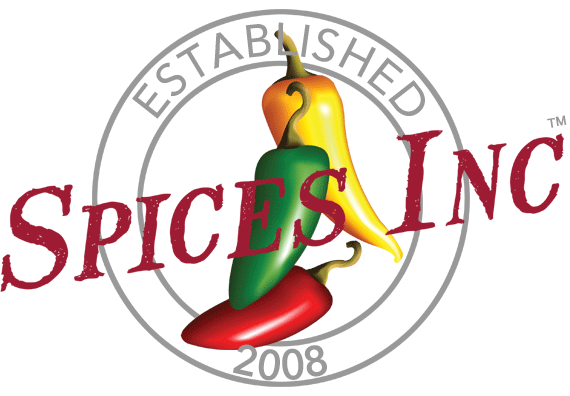Apple Cider Vinegar Powder




Apple Cider Vinegar Powder
Apple Cider Vinegar Powder is a long-lasting, shelf-stable product that delivers the tart flavor of apple cider vinegar in easy-to-use powder. It is also called apple cider vinegar powder bulk, dried apple cider vinegar, dehydrated apple cider vinegar, or powdered apple cider vinegar.
Apple Cider Vinegar Powder is produced from apples that go through two separate fermentation processes, ensuring that the vinegar produced is of a high quality. The distinct flavor and familiar scent are preserved by spraying liquid apple cider vinegar on a maltodextrin carrier, allowing it to dry, and then grinding into a fine powder.
Apple Cider Vinegar Powder is popular with:
- seasoning companies;
- manufacturers of sauces and meal mixes;
- independent spice shops;
- olive oil shops;
- brewpubs, delis, cafes, barbecue, and pizza restaurants; and
- catering companies
Flavor Profile
Apple Cider Vinegar Powder tastes tart and vinegary with a very strong, sour aroma.
How To Use
Apple Cider Vinegar Powder is a huge hit with our competition barbecuers. Use Apple Cider Vinegar Powder any time you want extra tartness. It lightens up the heavy flavor of kidney beans and black beans or fatty meats like ribs and brisket. It adds a brisk pop to chilis; stir into Mexican Chicken Chili and let it simmer with the beans and corn. It gives zest to basting mops and adds even more zing to Smoky Molasses Rub BBQ Sauce without adding heat. Mix with broth or water and aromatics like garlic and onion for a quick marinade for ribs or pork shoulder. Stir with olive oil, water, and shallots for a supremely easy vinaigrette. Like salt and vinegar chips? Toss with salt and pepper over cubed potatoes and roast for a dinner side that’s like your favorite potato chip, only with a more satisfying bite.
This cannot be reconstituted to make apple cider vinegar.
| Also Called | Apple cider vinegar powder bulk, dried apple cider vinegar, dehydrated apple cider vinegar, or powdered apple cider vinegar |
| Ingredients | apple cider vinegar (maltodextrin, apple cider vinegar, modified food starch) |
| Flavor Profile | Tart and vinegarlike with a very strong, sour aroma |
| Recommended Uses | Barbecue rubs, beans, chilis, marinades, dressings, popcorn, or potatoes |
| Cuisine | Global |
| How To Store | Airtight container in a cool, dark place |
| Shelf Life | 6-12 months |
| Country of Origin | USA |
Nutrition Facts
Serving Size1 tsp
Amount Per Serving
Calories14
% Daily Value*
Total Fat0g0%
Saturated Fat0g0%
Trans Fat0g
Polyunsaturated Fat0g
Monounsaturated Fat0g
Cholesterol0mg0%
Sodium0.7mg0%
Total Carbohydrate3.5g1%
Dietary Fiber0.0g0%
Total Sugars0.1g
Added Sugars0g0%
Sugar Alcohol0.0g
Protein0.0g0%
Vitamin D0mcg0%
Calcium0mg0%
Iron0mg0%
Potassium3mg0%
*The % Daily Value (DV) tells you how much a nutrient in a serving of food contributes to a daily diet. 2,000 calories a day is used for general nutrition advice. These values were calculated and therefore are approximate. For more accuracy, testing is advised.
